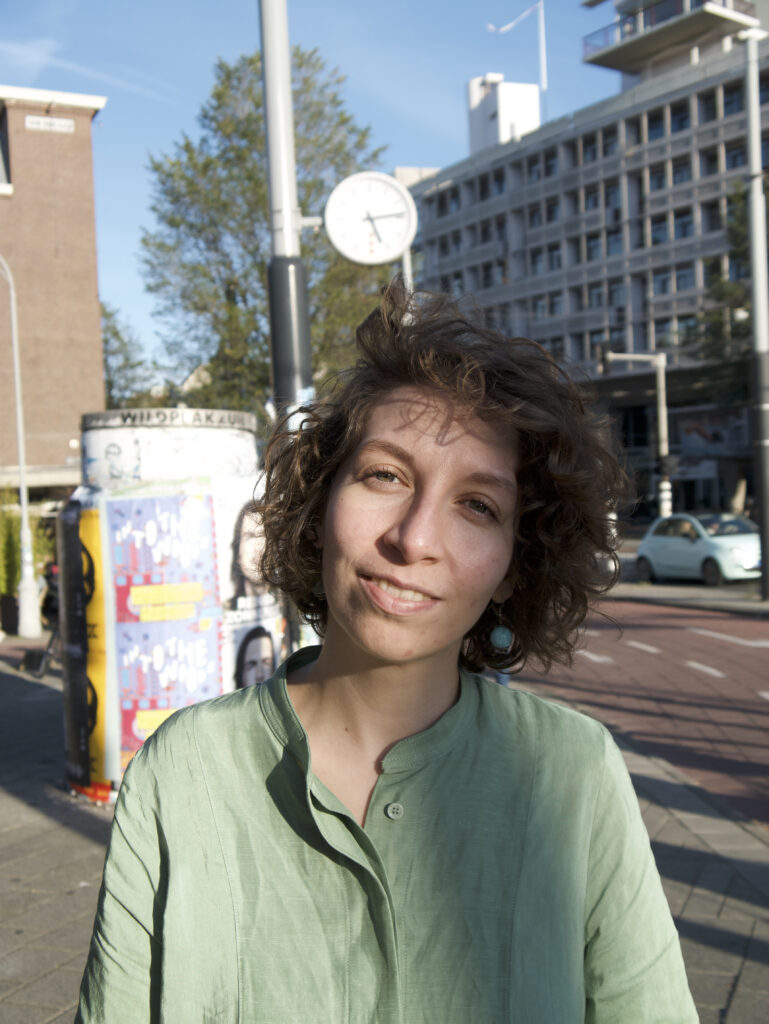Blog
Summer of collaboration
It’s been a full summer! The “Homelands, Nightmares, Good Immigrants” event announced in the last blog post was a joy, as captured in the photos below and in this detailed write-up by publisher Gersy Ifeanyi Ejimofo for New Books in German.
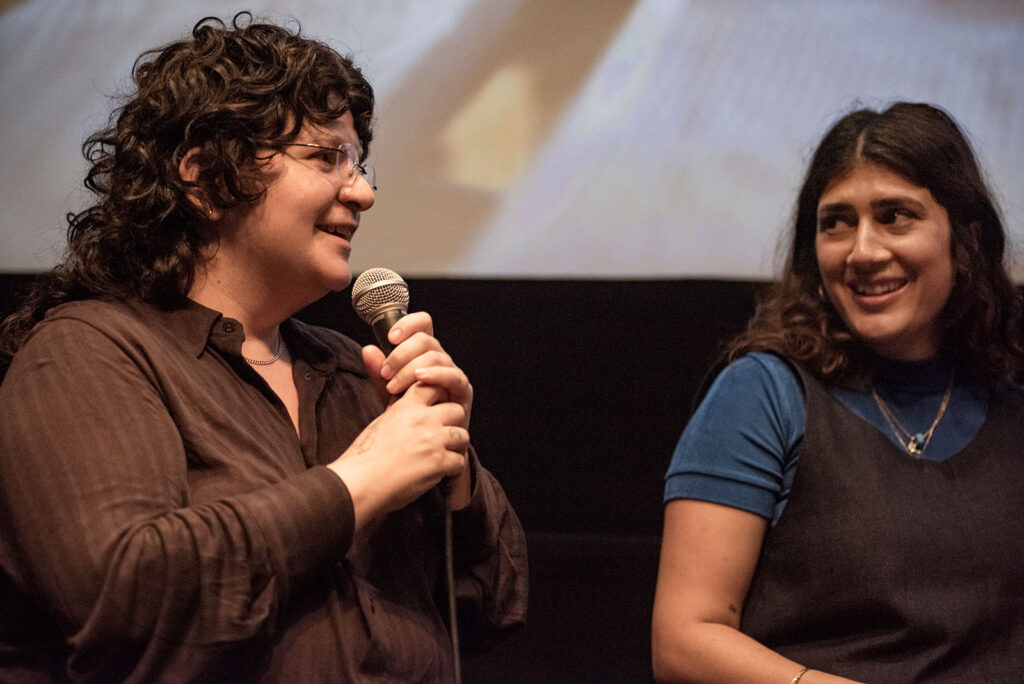
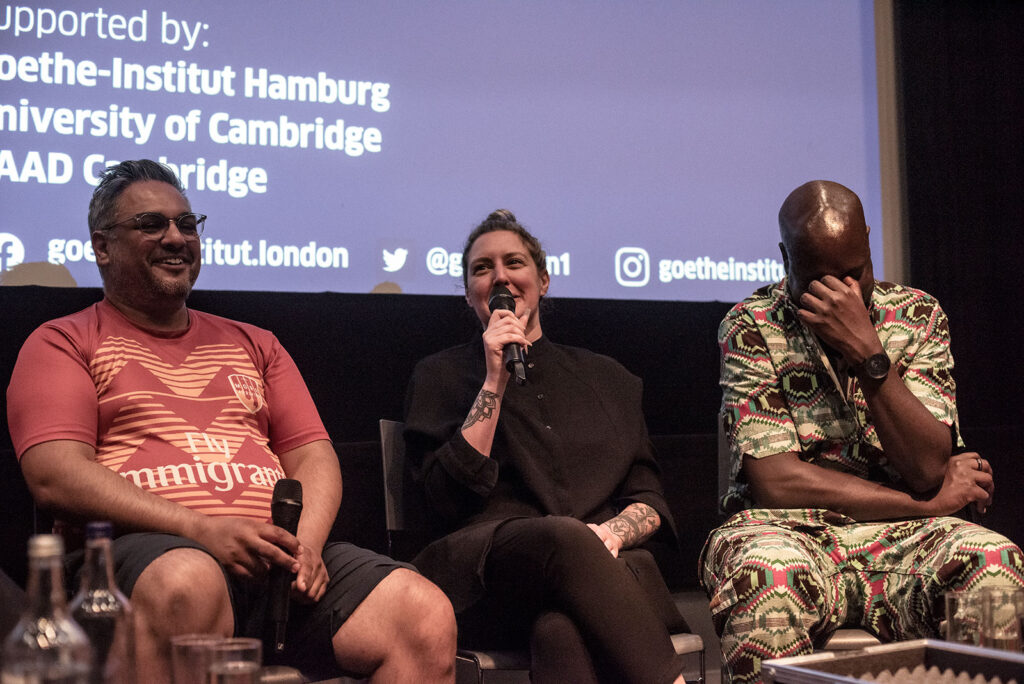
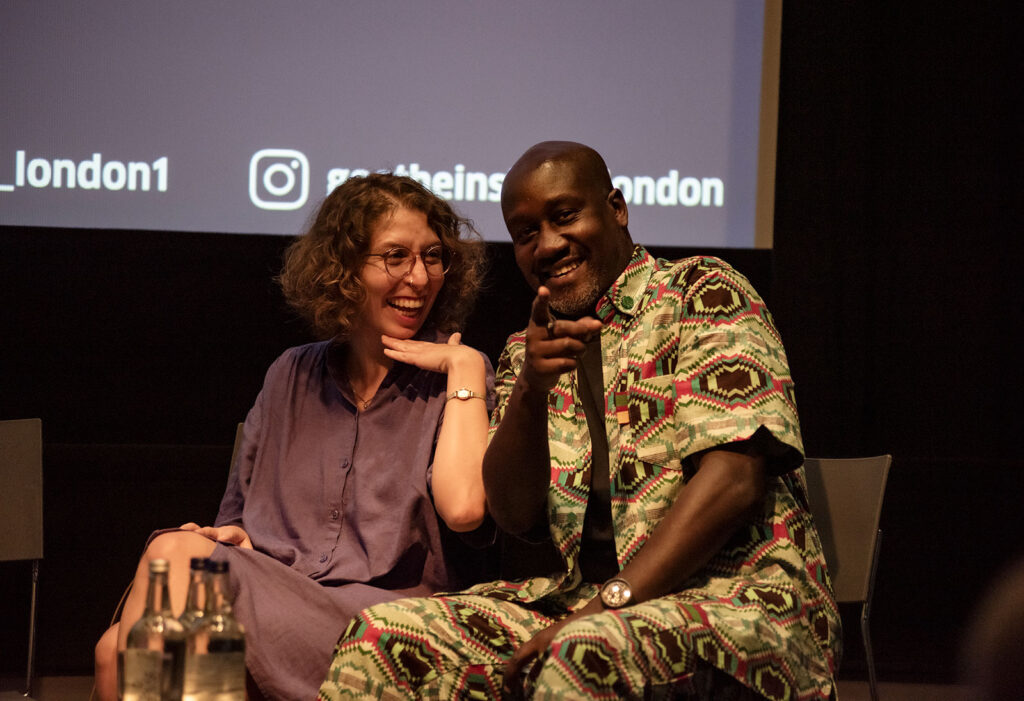
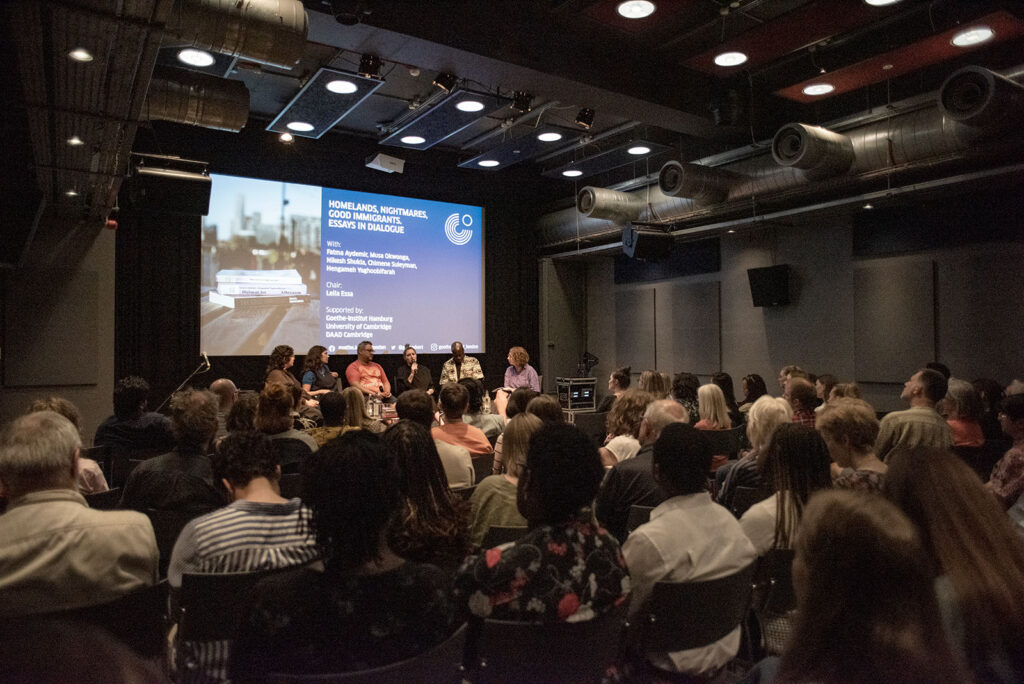
It was particularly great to have the time and space to continue our panel conversation informally with members of the (packed!) audience: readers, researchers, publishers… Huge thanks again to the Goethe Institute London for the hospitality, particularly to Gosia Cabaj, to Schayan Riaz at the Centre for International Cultural Education (Goethe Institute Hamburg) for curating so excellently and to Tara Talwar Windsor at the Cultural Production and Social Justice research group at Cambridge University and the Cartography of the Political Novel in Europe ERC project for the publicity work and our continuous collaboration!
As collaboration is central to the research questions guiding this project, it is exciting to see it propelled forward by previously unforeseen connections, too – and I’m delighted that new ones come about through fellow researchers happening upon this blog! One such connection is that to Marta Cenedese, who had kindly asked me to participate in the very rewarding seminar Studying Activism that she organised as part of the INTERACT project (Intersectional Reading, Social Justice and Literary Activism) at the University of Turku. We are now co-proposing the seminar stream Activist Writing / Activist Reading for the upcoming ACLA conference in Montreal. Synthesising our respective research interests in activist author- and readership, this seminar stream aims to define the meanings and theoretical implications of these concepts across geographical and historical contexts. Abstracts can be submitted via the ACLA website until 30 September!
The past two months have already brought about opportunities for exchange on decolonial discourses in fiction and theory at the DAAD Graduate Summer School Dis/Connections at Durham University and on artistic research practices at the annual AGS conference at Trinity College Dublin. For the summer school, which was organised by Claudia Nitschke and Alexis Radisoglou, I’d prepared a module on the necessary – and productive – difficulty of transferring decolonial discourses across genre and context via texts by Mithu Sanyal, Priyamvada Gopal and the Decolonizing Media Collective. At the conference I got to present and reflect on my contribution to anders bleiben – and was especially fascinated by the work of others coming together around the Creative Modern Languages.
One academic-public get-together that I will sadly have to miss, but warmly recommend to anyone in Berlin in early October is the inaugural workshop by the Tales of the Diasporic Ordinary ERC project: Anyone Anywhere All the Time: Simultaneity, Disconnect, and the Queer Diasporic Ordinary. I’m also very excited, though, to come to Berlin soon after – not least for the award ceremony for the Kurt-Tucholsky-Preis on the 22nd of October! After much reading and discussing this summer, us jury members – Doris Akrap, Ulrich Janetzki, Reinhold Lütgemeier-Davin, Nikola Richter and myself – have recently announced our shortlist for this price for politically engaged German-language writing in short forms. It features (alphabetically):
- Puneh Ansari
- Elisa Aseva
- Alexander Estis
- Marko Martin
- Hengameh Yaghoobifarah
And the winner will be announced any moment now!

